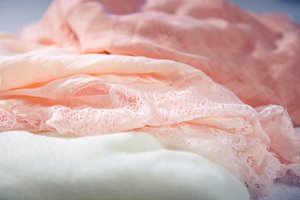However, global textile consumption has also resulted in negative environmental and societal effects. The production of textiles requires large amounts of water, energy, and chemicals. Additionally, increased consumption leading to increased waste management contributes to climate change.
To address these challenges, there has been an increased focus on sustainability within the textile industry. Many companies are working to reduce their environmental impact by using more sustainable materials, reducing water and energy consumption, and improving waste management and recycling. Initiatives such as circular economy have also begun to gain traction to reduce overconsumption and promote more sustainable textile consumption.
MoRe Research, subsidiary of RISE, together with Renewcell, Domsjö Fabriker, and Mid Sweden University, has a project focusing on textile fiber recycling. It consists of four parts:
- Characterization of textile waste pulp for viscose processing.
- Accessibility of recycled cotton fibers.
- Impact of synthetic fibers in the viscose process.
- Blending of recycled textile waste and wood pulp.


